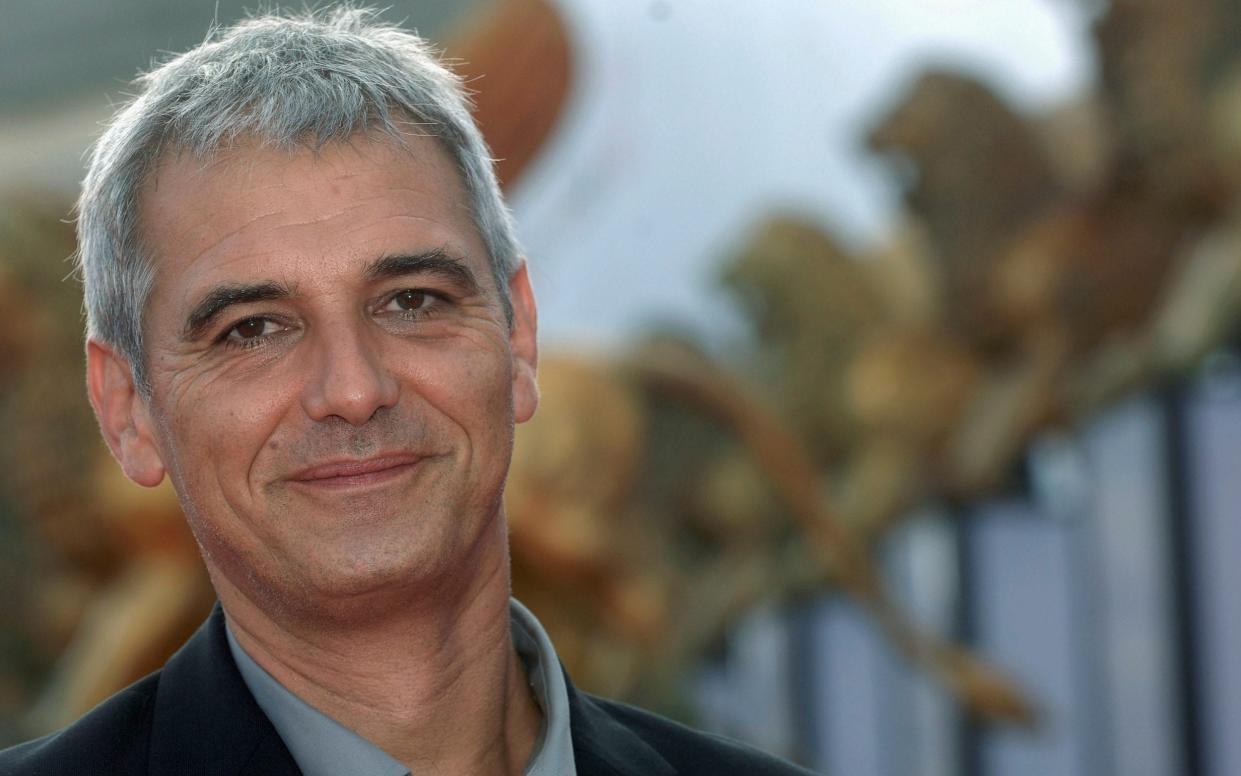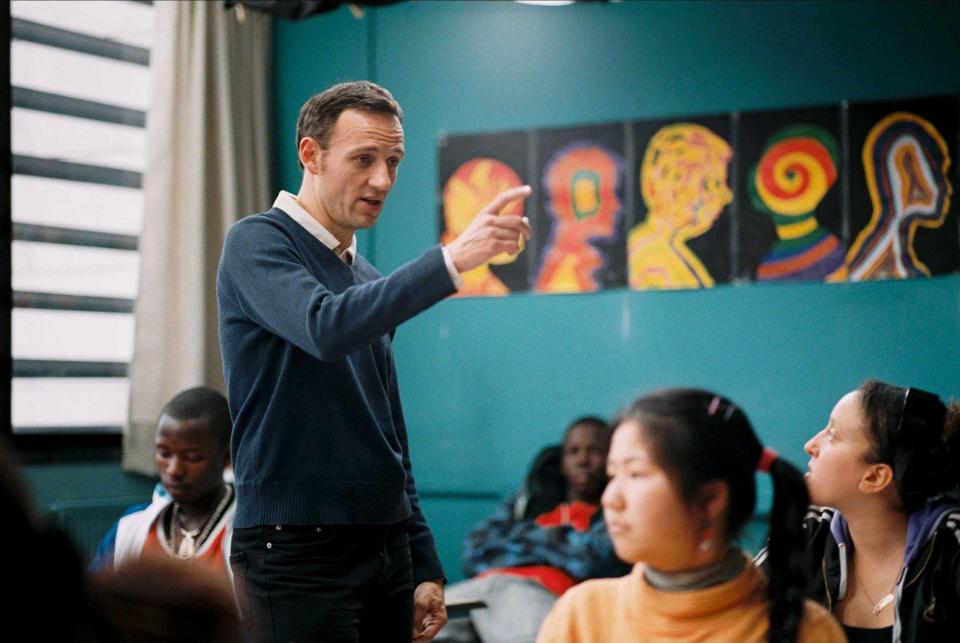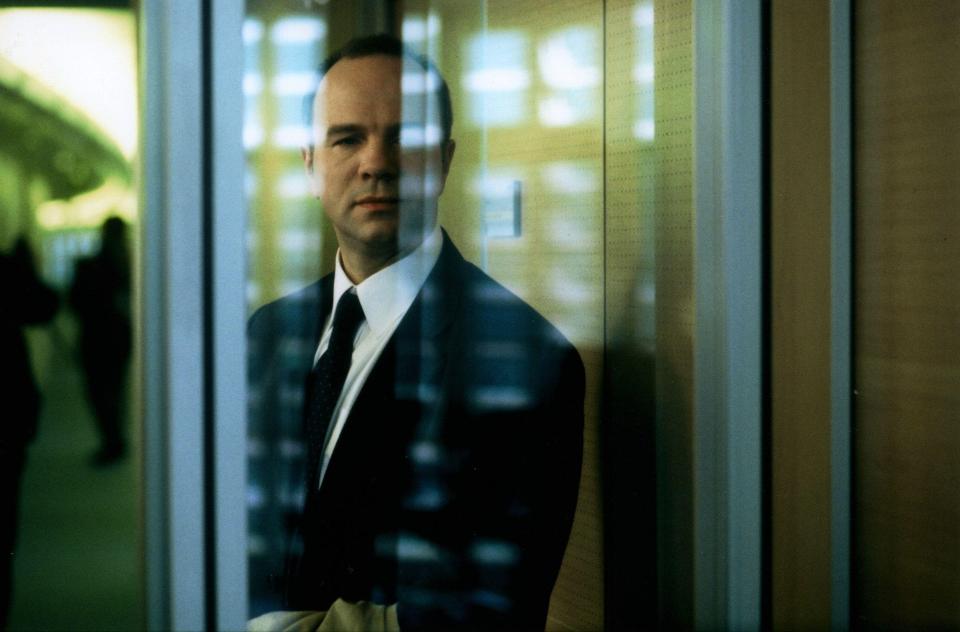Laurent Cantet, French film director who enjoyed wide success with The Class – obituary

Laurent Cantet, who has died of cancer aged 63, was a French writer-director who brought a subtly probing but non-judgmental gaze to a run of films that doubled as parables of contemporary life, most notably the Palme d’Or-winning The Class in 2008. “I’m always interested in showing the complexity of our world,” he said. “What’s always difficult is making a film that deals with reality without being too didactic.”
A number of Cantet’s stories explored people’s relationship to the work they do. Where Human Resources (1999) stalked a business-school graduate sent to oversee lay-offs at the factory employing his aging father, Time Out (2001) followed a man so ashamed at losing his job that he drives around during office hours, pretending to be gainfully employed.
Time Out paired Cantet with the screenwriter Robin Campillo, himself later a director of note. The pair reteamed for Heading South (2005), an adaptation of Dany Laferrière’s short stories about white women visiting Haiti in the 1980s. Despite a typically steely Charlotte Rampling performance, the film yielded scattered critical responses, yet Cantet and Campillo rebounded with The Class, a modern classic strikingly different from the sentimental school dramas of yore.
For starters, its source was a memoir by the essayist François Bégaudeau about the disillusion he felt while teaching. Cantet asked the boyish Bégaudeau to play a version of himself opposite real-life pupils in a dramatisation of the incidents that had pushed him to quit.
In his Time review, Richard Schickel noted this hard-won authenticity: “It is hard to think of another film more tightly autobiographical than this one. It’s even harder to think of other films that build so gripping a narrative out of a string of comparatively minor and disparate incidents.”

Cantet sensed he was on to something when teachers at the Parisian school he was filming at complained that pupils were more motivated about attending his fictional lessons than their own real ones; a last-minute entry at Cannes, the film eventually scooped the festival’s top prize, becoming the first French winner for 21 years.
Although beaten to the Foreign Film Oscar by the Japanese drama Departures, The Class proved a notable arthouse success, a film that asked big questions about education without losing sight of what makes a compelling story. “Fiction is really important in my films, even if it deals with something very real and very social,” Cantet told one interviewer. “I think that putting political and social issues first would make people afraid to come and watch the film.”
This particular fiction reflected the director’s roots. The son of two teachers, Laurent Cantet was born on April 11 1961 in the commune of Melle in western France. He studied photography at university in Marseille before attending the national film school, IDHEC.

Initially he ventured into non-fiction, assisting the veteran documentarist Marcel Ophuls on Veillées d’armes (1994), on the siege of Sarajevo. Yet he broke through with striking short and medium-length fictions: Jeux de plage (1995), a coastal blueprint for Human Resources that won the Prix Jean Vigo for Best Short Film, and the made-for-TV Les sanguinaires (1999), about a man retreating to an island off Ajaccio, Corsica, to avoid the mania of Y2K.
Following his Cannes triumph, Cantet was tempted westwards. In Canada, he filmed, in English, Foxfire: Confessions of a Girl Gang (2012), a textured and detailed adaptation of Joyce Carol Oates’s novel. He then headed south to Cuba for the anthology film 7 Days in Havana (2012), each segment filmed by a different director, and Return to Ithaca (2014), a somewhat underpowered drama about old friends reuniting on a rooftop terrace to discuss their place in revolutionary history.
Thereafter Cantet came home, reteaming with Campillo for the Marseille-set The Workshop (2017), which updated the cross-generational debate that so elevated and electrified The Class with the added dramatic charge of online nationalism. That aspect of web-enabled chaos was central to Cantet’s final film, Arthur Rambo (2021, unreleased in the UK), in which an emergent media personality has his upward mobility checked by the discovery of hateful Tweets posted by his younger self.
Cantet’s social commitment extended offscreen: he was affiliated with the Collectif des Cinéastes Pour les Sans-Papiers, who provide support to undocumented migrant workers, and he served as the president of Passeurs d’Images, an association which campaigns for greater film literacy in schools.
Promoting The Workshop, Cantet spoke of the need for society to engage the young: “I was very happy at the end of shooting, [as] one of the guys [in the non-professional cast] thanked me for the wonderful experience he had. He told me, ‘You know, it’s the first time I’m speaking that much. Not just joking with friends (I know how to do that), but with the film, for a few months, we had to think precisely [about] what we are living today, and it was a great experience.’ I think that’s what we should do with young people: give them space to think together.”
Laurent Cantet, born April 11 1961, died April 25 2024

 Yahoo News
Yahoo News 
